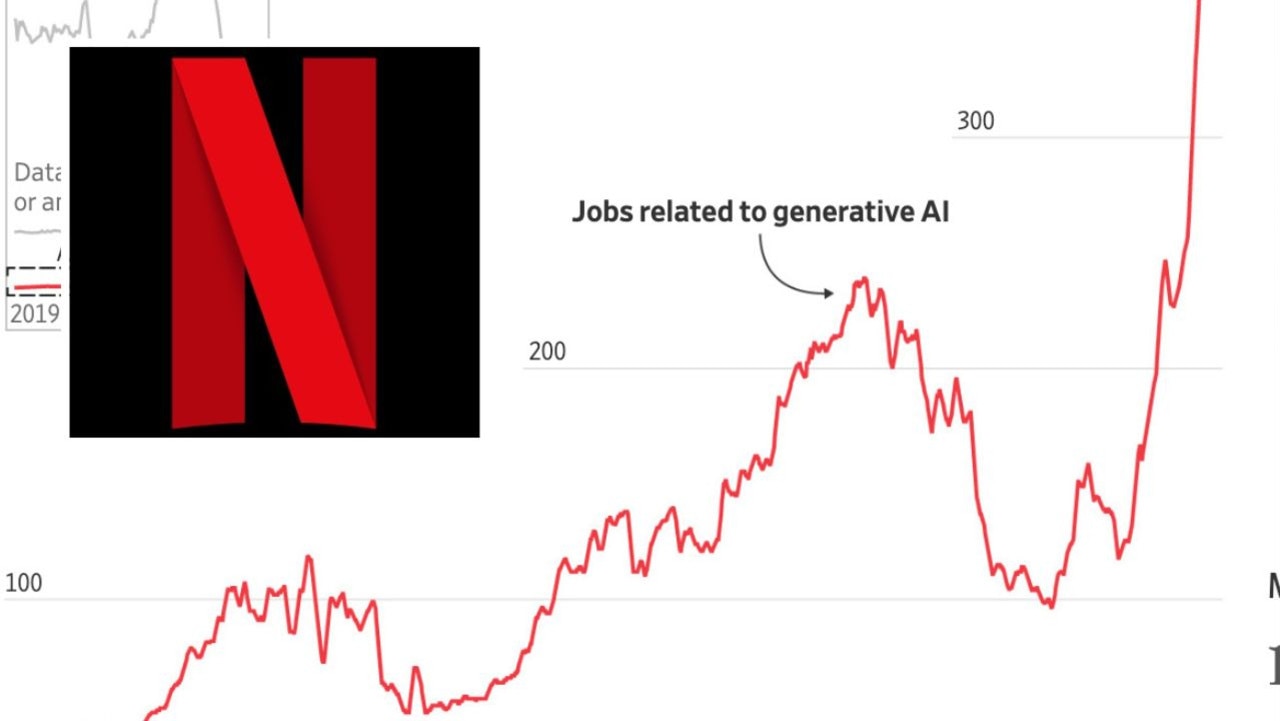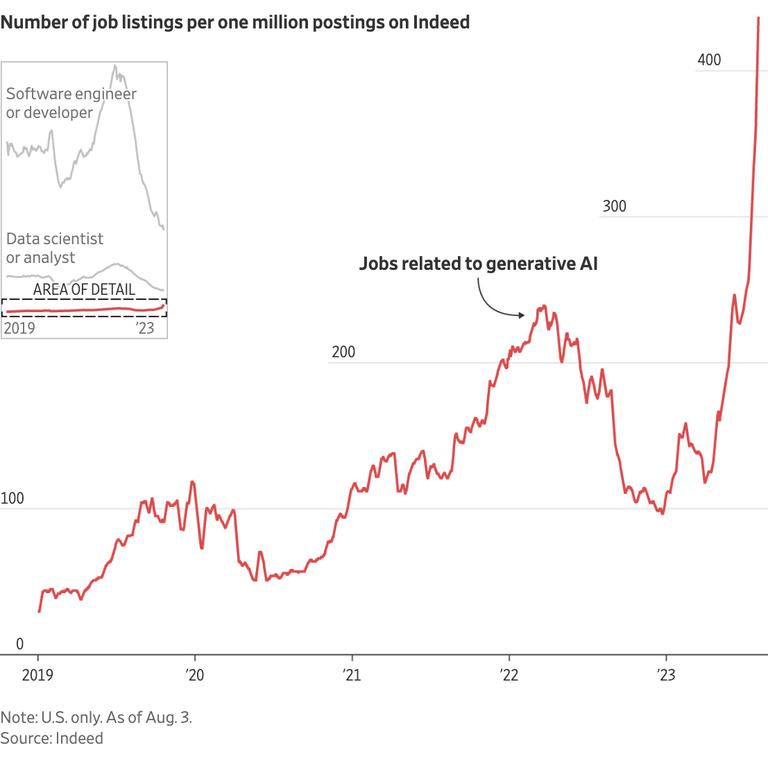Companies paying up to $1.4m for AI skills
A host of high-profile companies are offering eye-watering salaries as they look to hire workers with a new and controversial skill.

A host of high-profile companies are offering eye-watering salaries as they look to attract workers with a new and controversial skill.
The number of job listings related to generative AI on the job site Indeed has tripled since the start of the year, according to data obtained by The Wall Street Journal.
Generative AI refers to artificial intelligence that can create new content, rather than simply analyse existing materials.
Given there is a shortage of experienced workers in the emerging field, which exploded with the release of generative chatbot ChatGPT, many US companies are offering huge salaries in an attempt to woo talent.

“This is pure market economics,” Paul J. Groce, a partner at executive recruitment firm Leathwaite, told the publication.
“We do not magically have thousands of additional AI developers, product managers and everything else.”
And the workers don’t just get huge salaries. The labour shortage also means AI experts can pick and choose which projects they want to work on.
“AI talent is hard to get. It’s expensive. And at the same time, it is highly selective,” explained Bill McDermott, CEO and chairman of software company ServiceNow.
“People (with AI skills) want to go to places where they not only can prosper financially, but they can work on things that inspire them because they have ultimate choice.”

Last month, Netflix attracted fierce criticism after listing an AI product manager role with a staggering $1.4 million yearly salary. The company appeared to be looking for an AI expert who could help to generate new content and shows, amid fears that actors will be replaced by digital lookalikes.
Meanwhile, dating app Hinge is looking to hire a vice president of AI to lead its AI strategy and is offering a salary of up to US$398,000 (A$621,000) per year. Amazon, too, has posted a job listing for a senior manager in applied science and generative AI, who could snag a salary as high as US$340,300 (A$531,000).
Capital One, a Virginia-based bank that helped to mass market credit cards in the 1990s, is hiring a distinguished engineer of AI, offering a yearly salary of up to US$325,700 (A$509,000), while US retail giant Walmart is seeking a senior manager for its conversational AI platform, which helps to handle customer service, offering between US$168,000 and $252,000 (A$262,000 - $294,000) per year.

And those are just the top players in the field. Early-to-mid career workers familiar with AI, including university graduates, can also cash in on the trend.
Meta, the company behind Instagram and Facebook, recently posted a job listing for a generative AI research engineer with an annual salary as high as US$137,000 (A$214,000). The company made it clear they would consider graduates for the role. Nvidia, which makes computer chips for game consoles and PCs, also posted an entry-level job opening for a generative AI research scientist, with a salary between US$156,000 and $247,250 (A$244,000 - $386,000).
Many in the field claim AI will be a game-changer in terms of improving products and boosting productivity, but the technology has faced significant backlash over fears it will threaten jobs.
After the release of ChatGPT, it became clear to many what was under threat. According to Goldman Sachs, AI could automate 25 per cent of the entire labour market, including 46 per cent of tasks in administrative jobs, 44 per cent of legal jobs, and 37 per cent of architecture and engineering jobs.
Defenders of generative AI, however, compare it to the advent of the internet. They say it will destabilise the job market temporarily, but ultimately lead to the creation of new, previously unimagined jobs similar to the number it replaced.
Get in touch — chloe.whelan@news.com.au






